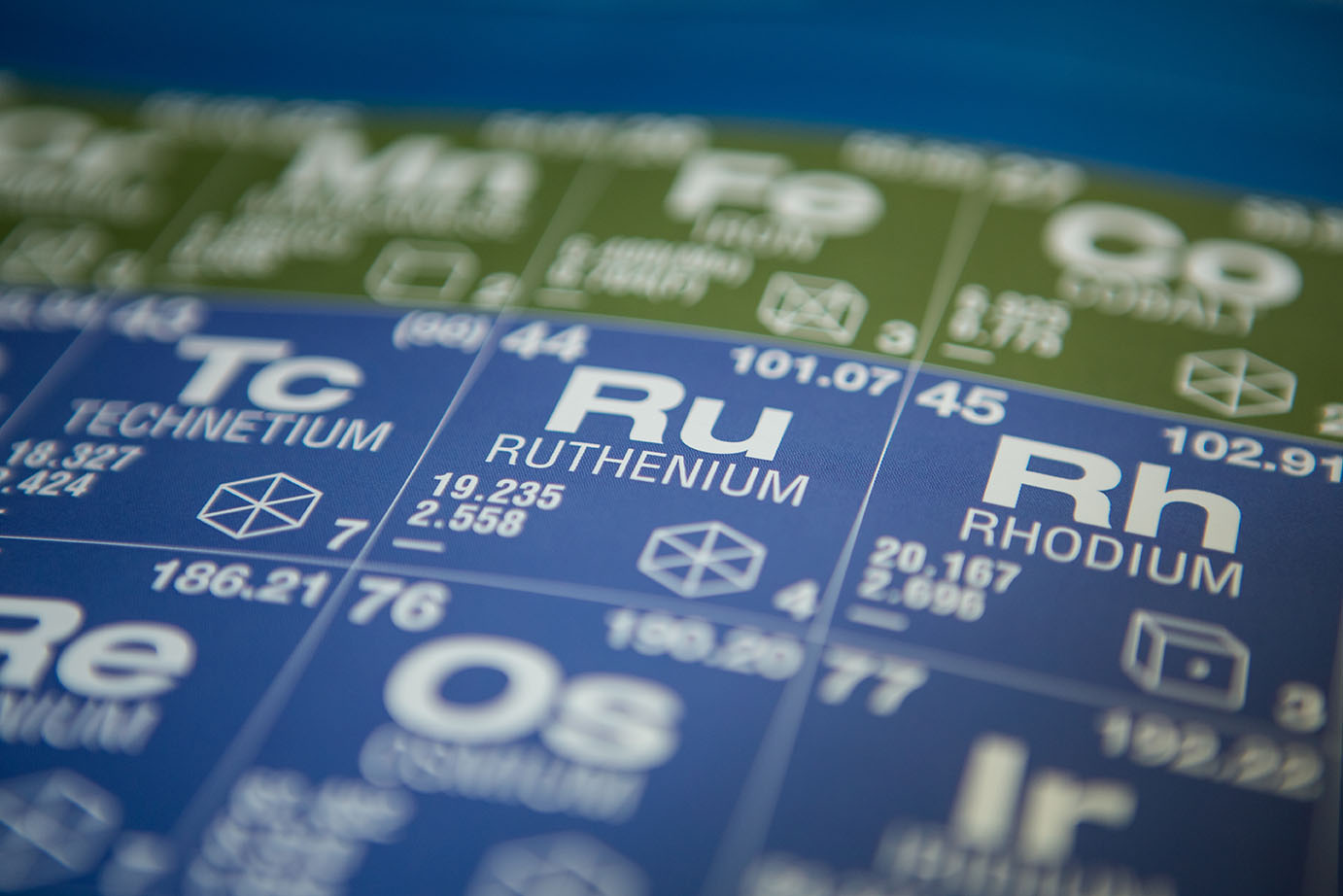

Ruthenium is a chemical element with the symbol Ru and atomic number 44. It is a silvery-white metal that is found in very small amounts in nature. It is a member of the platinum group metals and is similar to metals like palladium and rhodium. Ruthenium is a very hard and dense metal, and it is also a very good conductor of heat and electricity.
Ruthenium has a number of unique properties that make it useful in a variety of applications. For example, ruthenium is very resistant to corrosion, which makes it ideal for use in jewellery and electronics. Ruthenium is also a very good catalyst, which means that it can speed up chemical reactions. This makes ruthenium useful in a variety of industrial processes, such as the production of gasoline and plastics.
Ruthenium is also a very rare element, which makes it expensive. However, the unique properties of ruthenium make it worth the cost in many applications.
Ruthenium is a rare metal that is found in small amounts in nature.

Noun:
Adjective:
The word "ruthenium" comes from the Latin word "Ruthenia", which was used to refer to Russia.
The first recorded use of the word "ruthenium" was in 1844, by Russian chemist Karl Ernst Claus. He discovered ruthenium in the Ural Mountains of Russia.
The word "ruthenium" is a New Latin word, which means that it was created by scientists. It is derived from the Latin word "Ruthenia", which was used to refer to Russia. This is because ruthenium was first discovered in Russia.
What is ruthenium?
Question:
Explain the significance of ruthenium as a transition metal, highlighting its applications in industrial and technological fields.
Answer:
Ruthenium, a transition metal with atomic number 44, holds significance in various industrial and technological domains due to its unique properties. It is a hard and durable metal that is highly resistant to corrosion and oxidation, even at high temperatures. These characteristics make ruthenium valuable in a range of applications.
One notable application is in the production of electrical contacts, where its resistance to wear and corrosion ensures longevity and reliability in devices like switches and connectors. Ruthenium is also used as a catalyst in the chemical industry, promoting reactions like catalytic reforming in petroleum refining and the production of chemicals such as ammonia.
Furthermore, ruthenium compounds are employed in the field of electronics, particularly in the fabrication of thin-film resistors for integrated circuits. Its use in these resistors helps regulate electrical resistance, contributing to the proper functioning of electronic devices.
Additionally, ruthenium is being explored for its potential in energy storage and conversion technologies, such as supercapacitors and hydrogen fuel cells.
In summary, ruthenium's unique properties make it an important transition metal with applications in electrical contacts, catalysts, electronics, and emerging energy technologies. Its versatility and performance in various industries underscore its importance in advancing technology and industrial processes.
Address
Developing Experts Limited
Exchange Street Buildings
35-37 Exchange Street
Norwich
NR2 1DP
UK
Phone
01603 273515
Email
hello@developingexperts.com
Copyright 2025 Developing Experts, All rights reserved.